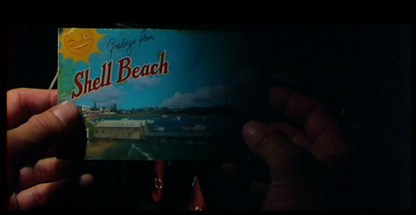Before Their Time: Dark City
By Daniel MacDonald
September 3, 2009
I didn't love Alex Proyas' Dark City when it was first released in 1998. Gloomy and moody, the film seemed to be all style over substance, and a muddled style at that. Incorporating elements of 1940s film noir, science fiction, and psychological thriller, the movie didn't seem to stand out in any of those genres. Dark City struck me as overcooked. It was only after the director's cut was released - and I saw the true vision Proyas intended to put up on the screen - that I came to appreciate this picture as one of the best plotted releases of the '90s. Apparently I wasn't the only one whose world was left less than rocked during Dark City's theatrical run, but since its disappointing box office run, it has gone on to develop a serious cult following, counting esteemed critic Roger Ebert among its most fervent cheerleaders. Dark City was indeed before its time, both for the moviegoing public at large and for me personally.
Dark City's protagonist, John Murdoch (played with frantic zest by Rufus Sewell), is suffering from amnesia, and is being pursued for a muder that he may or may not have been involved with by both a police inspector (William Hurt) and a mysterious cadre of men known as the Strangers, who possess telekinetic powers and are altogether unpleasant. Murdoch struggles to regain his memory with the help of his lounge singing wife (Jennifer Connelly), and ultimately becomes obsessed with finding what he learns was his childhood home, Shell Beach. He's sure that if he can reach that elusive place - a location that seems to evade him at every turn - his memories will return, and he'll once again know what kind of man he is. I won't say more for the risk of spoiling the story's significant and satisfying mysteries, but along with the great plot, Dark City is worth checking out for Kiefer Sutherland's uncharacteristically quirky performance.
The mystery element is of vital importance to Dark City's structure. As written by Proyas, David Goyer (The Dark Knight) and Lem Dobbs (The Limey), much of the story is told from the subjective viewpoint of John Murdoch. Even scenes in which Murdoch doesn't appear are designed not to give too much away, and rarely reveal anything to us that Murdoch doesn't already know. We're not intended to be ahead of our hero, which is why the director's cut released last year is so, so much better. Gone is the heinously expositional voiceover that ruins the third act twist in the first ten minutes, along with a number of other elements that we were intended to learn about much later, leaving behind a tightly structured head scratcher of a movie that, while it sometimes confuses the hell out of the viewer, nonetheless retains enough of a hook that we want to keep on watching. It's remarkable to me that Dark City became a cult favorite prior to the new version's release, really, because the theatrical version seems so compromised in comparison.
Continued:
1
2




